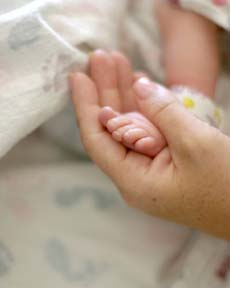Islam builds a family in which prevails mutual respect and care. Parents and children in Islam are bound together by mutual obligations and reciprocal arrangements. Allah Says (what means): “…No mother should be harmed through her child, and no father through his child…” [Quran 2: 233]
The Quran has made it compulsory for the child to treat his parents with all goodness and mercy.
Every Muslim must show goodness and mercy to his parents throughout their lives. There is only one exception to this, and that is, if the parents ask their children to associate anything with Allah and to commit sins, then the children must not obey their parents. In all cases, the children must show love and gratitude to their parents. They must always speak to them gently and respectfully. They must try their best to make them happy, provided they do not disobey Allah in the process.
Allah says (what means): “But if they (both) strive with you to make you join in worship with me others of which you have no knowledge, then obey them not; but behave with them in the world kindly…” [Quran 31:15]
Being patient and tolerant with parents:
The children must take great care not to react to what their parents have to say. If they say or do anything which is not liked or approved of by the children, then they must show patience and tolerance instead of giving vent to their anger. The children must scrupulously try to refrain from disobeying their parents since the Prophet ![]() regarded this as one of the grave sins.
regarded this as one of the grave sins.
We must continue praying for them even after they die. Such prayer will be regarded as a continuous charity as the Prophet, sallallaahu alayhi wa salllam, told us.
The greater right of the mother:
The children must be kinder and more grateful to their mothers since they took greater pains in their upbringing. That is why the Prophet ![]() emphasized that it is the mother who has the first claim on the child's care and attention.
emphasized that it is the mother who has the first claim on the child's care and attention.
Once a companion, may Allah be pleased with him, asked the Prophet ![]() as to whom he should show more kindness. The Prophet
as to whom he should show more kindness. The Prophet ![]() replied: "Your mother." He, may Allah be pleased with him, asked who comes next and the Prophet
replied: "Your mother." He, may Allah be pleased with him, asked who comes next and the Prophet ![]() again replied: "Your mother." He, may Allah be pleased with him, asked the Prophet
again replied: "Your mother." He, may Allah be pleased with him, asked the Prophet ![]() yet again who comes next. The Prophet
yet again who comes next. The Prophet ![]() replied: “Your mother." When the companion, may Allah be pleased with him, asked for the fourth time, only then did the Prophet
replied: “Your mother." When the companion, may Allah be pleased with him, asked for the fourth time, only then did the Prophet ![]() reply: "Your father."
reply: "Your father."
Recognizing their great status:
The Muslim should recognize the status of the parent and know his duties towards them. The status of parents in Islam is a status which mankind had not known before. Allah Has placed the respect for the parents just one step below the belief in Allah and true worship of Him.
Allah says (what means): “And your Lord has decreed that you not worship except Him, and to parents, good treatment. Whether one or both of them reach old age [while] with you, say not to them [so much as], "uff," and do not repel them but speak to them a noble word.” [Quran 17: 23]
The Prophet ![]() placed kindness and respect towards parents just after the prayer offered on time as the prayer is the foundation of Islam.
placed kindness and respect towards parents just after the prayer offered on time as the prayer is the foundation of Islam.
'Abdullaah Ibn Mas’ood, may Allah be pleased with him, said: “I asked the Prophet ![]() which deed is most liked by Allah? He
which deed is most liked by Allah? He ![]() said: ‘Prayer offered on time.’ I asked him: ‘Then what? He
said: ‘Prayer offered on time.’ I asked him: ‘Then what? He ![]() said: ‘Kindness and respect towards parents.’…” [Al-Bukhari and Muslim]
said: ‘Kindness and respect towards parents.’…” [Al-Bukhari and Muslim]
Knowing the duties towards them:
It is also the duty of the child to provide for his parents, if he is able to do so. The Quran sums up the whole matter in a master concept called Ihsaan, which denotes what is right, good and beautiful (i.e. showing to them kindness, compassion, gratitude, reverence and respect, praying for them and supporting them financially if they are in need.)


 Home
Home Discover Islam
Discover Islam Quran Recitations
Quran Recitations Lectures
Lectures
 Fatwa
Fatwa Articles
Articles Fiqh
Fiqh E-Books
E-Books Boys & Girls
Boys & Girls  Ramadan
Ramadan Fatwa Audios
Fatwa Audios Month of Mercy
Month of Mercy Women
Women Eed Al- Fitr
Eed Al- Fitr Food Recipes
Food Recipes Videos
Videos

 Prayer Times
Prayer Times












